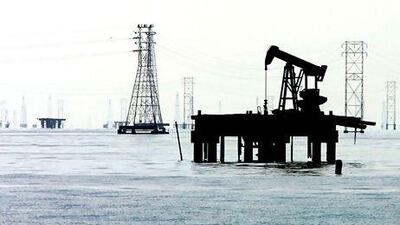Its oil reserves are bigger than Saudi Arabia's, but output has been declining steadily. Vast oil riches notwithstanding, Venezuela's budget deficit is spiralling out of control because of a bloated bureaucracy and heavy social spending, sapping investment into the energy sector.
For the country's oil industry, there is no ambiguity over Hugo Chavez's legacy.
"With Chavez and his charisma gone, the move towards market reforms could eventually begin with the opposition standing ready to take control," said Ole Hansen, the head of commodity strategy at Saxo Bank. With demand for oil still rising on strong economic growth in Asia, added flows from Venezuela's fields would help to keep the market in balance.
"Reforms and the reintroduction of foreign investment will not happen overnight, possibly not for a few years. But once it does, another source of increased supply will further help to alleviate some of the worries about future supply not keeping up with an increased demand, especially from emerging economies," said Mr Hansen.
After 14 years of the controversial president's rule, Venezuela's oilfields pump just 2.7 million barrels per day (bpd), 13 per cent less than when Chavez came to power in 1999. Since that time, proven reserves have tripled to 296.5 billion barrels - the world's largest - according to the BP Statistical Review.
And little change is likely in the foreseeable future.
"The death of president Chavez increases uncertainty over the political direction of Venezuela in the short term," said Oswald Clint, an energy analyst at Sanford C Bernstein. "However, we believe the most likely scenario is one where the current environment for international oil companies continues."
Oil production is under the auspices of the national oil company Petróleos de Venezuela (PDVSA), which holds a majority stake in every active field. The demands placed on the company by the treasury have increased over time, and oil now accounts for 96 per cent of the country's dollar earnings.
A US$233bn (Dh855.83bn) development of the bountiful Orinoco heavy oil belt fell behind schedule during Chavez's prolonged illness.
If Nicolas Maduro, the vice president and Chavez's chosen successor, wins an election that is set to be held within a month, social spending will continue to be prioritised over investment into the oil sector, says Carlos Bellorin, an energy analyst at IHS Global Insight. The PDVSA's inability to get crude production back on track may result in concessions to foreign oil companies being made.
"PDVSA may be forced to ease some terms in negotiations to obtain capital from its partners to start seven new projects in the Orinoco belt and increase production from strategic assets," said Mr Bellorin.
Even in the event that the opposition comes to power, Venezuela's oil policies are not likely to undergo radical change in the coming years.
"Gradualism will be the rule," said Mr Bellorin, who believes that the national oil company would be disentangled from the tight control of the ministry of petroleum and mining, and would give more autonomy to the joint ventures operating the fields.
Over time, Chavez's shadow will recede from the dilapidated oil sector, and more meaningful reforms could unlock Venezuela's vast potential.
fneuhof@thenational.ae

Even in death, Hugo Chavez still casts a long shadow over oil prices
Hugo Chavez's death does not spell immediate relief for Venezuela's underperforming oil sector
Most popular today
